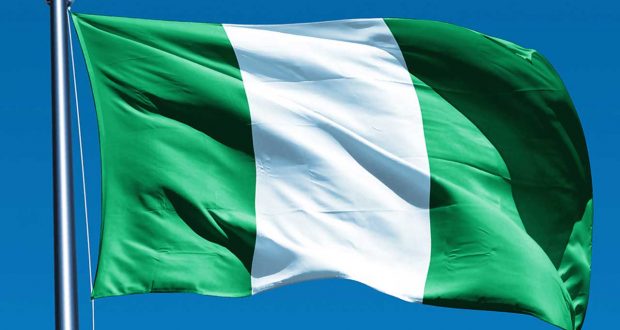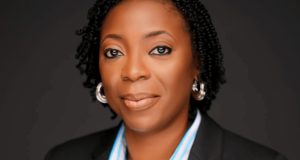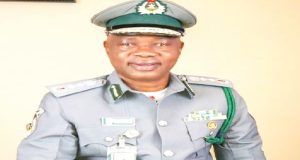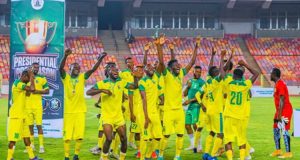As a nation, we have seen the ups and down, the good, the bad, the ugly, the funny, the incredible, the hills, the valleys. Indeed, as a nation, Nigeria, my country has seen them all; the positives and negatives even in plain white and black. Standing above all the ‘motus’, the protracted illness of leadership that has kept this giant on its crawling knees seems to be a hurdle most insurmountable.
Yesterday marked the 57th year since our country, Nigeria declared herself an entity independent of the British colonial hands. But then, historical records about our existence as a collective dates back to years earlier than the 1960 year of independence. One very popular among the records is that of January 11, 1914, when then Governor-General Lord Lugard was mandated to merge the Southern and Northern protectorates into one colony.
Granted, the years before independence were not in our hands, and as such, we should take no responsibility for the wrongs within this time. But who takes the blame for the wasted years that numbered up to 57 as at yesterday? 57 years of journeying as an independent state, why are our dreams and “hopes of an economically powerful nation with world class infrastructural amenities”, as expressed by Governor Udom Emmanuel yesterday, still works in progress? Why do we still have to dwell in hopes of getting to the promise land, after as much as 365 days in 57 places?
To the ordinary citizen, leaderships past and present have the blame to take, while to a politician, one political party or the other, one administration/regime or the other deserves the blame. Truth is, no one wants to look within and admit how his actions and inactions have contributed to the backwardness or at best, the snail-speed progress of the nation.
No doubts, the unchanging state of the nation in virtually all sectors is enough justification if we choose to relax in the sofas of despondency, but before we continue in our usual blame game, how much have we, as ordinary citizens, taken our individual attitudinal change seriously? In what ways have we lived our private and social lives to reflect the five (5) Fundamental Basis of the Philosophy of a new Africa, as was proposed by the Late Nnamdi Azikiwe- the man who first led baby Nigeria after her delivery from the colonial womb of Britain?
In his founded Africa’s Renaissance School of Thought, the Late Zik had proposed Spiritual Balance, Social Regeneration, Political Resurgence, Economic Determinism and Mental Emancipation as the fundamental basis Africa (Nigeria in this case) needed to fast track her journey to a spot among her contemporaries in the first world. Seven years after attaining the golden age, can he be proud of our efforts in individual and collective capacities?
As leaders and ordinary citizens, how much space have we created in our “spiritual balance” to accommodate the opinion and preferences of others, especially in situations where the strongest of our interests is seriously under threat(s)? To what extent do we regard the “freedom of expression/information” fundamental right act enshrined in our constitution, even where the case involves the strongest and weakest in financial and/or political power comparison?
In the case of social regeneration, after about 50 years of surviving the civil war that threatened to divide us, we still celebrate the victory of one Nigeria; but to what extent have we gone in breaking the barriers of tribal, political and/or religious prejudices, not just by way of physical boundaries, but in our individual mindsets? Have we stopped making discriminatory statements and acts against another citizen who does not share the same religion with us or speak the language we speak? Are we now seeing ourselves as citizens of one united system above political differences?
What has been our efforts in reviving our political system? At all levels of our polity, how relevant are the wishes of the people in leadership selection at all levels? Even in governance, how much room has leaderships past and present created to accommodate citizen’s participation in governance? What are our national interests as a nation, and in what ways are the interests of the majority of citizens captured in our national interests, as the case should be? Or is ours a typical example of the random claim by some scholars that the national interests of developing nations only capture the interests of a selected few, rather than that of the general citizenry?
Mental emancipation in Zik’s view was giving education to the citizenry to help them build enough confidence that would stand them tall in the midst of contemporaries from other parts of the globe. Sadly, the case in the Nigerian setting has become more of a case dependent on individual capacity. Rather than working towards improving upon our educational sector, our leaders are the ones patronizing institutions in the western world. Their contributions to the educational sector back home only end in public speeches and comments. How are they developing the sector with their children studying abroad? Before the cameras, they are achieving one step of development or the other, but in their bank statements, they are promoting capital flight. What a contradiction!
I believe while making these proposals for Africa, the late Zik never thought it would take his own Nigeria another 50 years to even find her feet in economic determinism. He may have accepted the reality that Nigeria was birthed when the world’s strongest economies were shifting from the first stage of industrial revolution to the second, but I am almost certain he never thought that the journey to a third stage will meet our economy still trying to find its way into the first stage of the revolution which is as old as five centuries.
From turning the world to a global village through information and communication technology, the world economic powers are moving towards replacing the human hands behind the technology with robots. Should the reality of a third industrial revolution meet our economy in its current struggling state, it is apparent how much of the indigenous hands will be out of jobs. What then happens to our citizens in the affected countries who went in search of greener pastures, owing to fact that our own pasture was and still is not auspicious enough to meet their desires?
Be that as it may, the good thing is that signs are showing we have at least progressed to a stage of realizing, or telling ourselves the truth about our backwardness. Hence, seen the need to restructure the overall system. For once, Nigeria is paying attention to lessons from distant shores- shores like the Netherlands’ which has no economically valuable natural resource, but making from agriculture about 5 times what Nigeria makes from her mega crude oil resource on annual basis.
With the realization that we lose over $100bn annually to just our laziness or failure to properly implement our diversification plans, Nigeria, we can admit, has stopped living in self deceit. Recently, the National Economic Council, during its last meeting, made a resolution to ramp up the process of diversifying the economy with a target of raising the annual proceeds from agricultural products to $30bn against the current stand of $5bn, to add up about $50bn to our foreign reserve within a decade, and to open up employment opportunities for over 10 million Nigerians. How we wish this will be one reality standing amidst the many deceits. However, the good thing is that there are economic plans. This, at least, speaks more proactivity than a blame game.
Closing, amidst the stormy tide, the bumpy roads and rollercoaster ride, the thorns and hurdles seemingly insurmountable… amidst her political, economic, socio-cultural and psychological doldrums and darkness, the expected light at the end of the tunnel cannot be written off. Fact remains that we are still a vibrant people with an undying can-do spirit. Though in the words of Rev. Fr. Samuel Nwagu, “the trouble with Nigeria is simply and squarely a failure of leadership”, and this problem, above others, appears most insurmountable, we are hopeful still that this too shall pass away. Indeed, we have chosen to remain in the consciousness that although the benefits of freedom and growth promised by democracy are yet to be realized, a better tomorrow and a more economically viable, united and peaceful Nigeria is an inevitable possibility. With this hope, I can now get my champagne bottle and glasses ready. So who is willing to clinch glasses with me in a toast?
Ubong Sampson is a proud Nigerian from Ata Idung Minya in Mkpat Enin LGA of Akwa Ibom State.
 Newsfront Online …Telling the Public as it is
Newsfront Online …Telling the Public as it is




